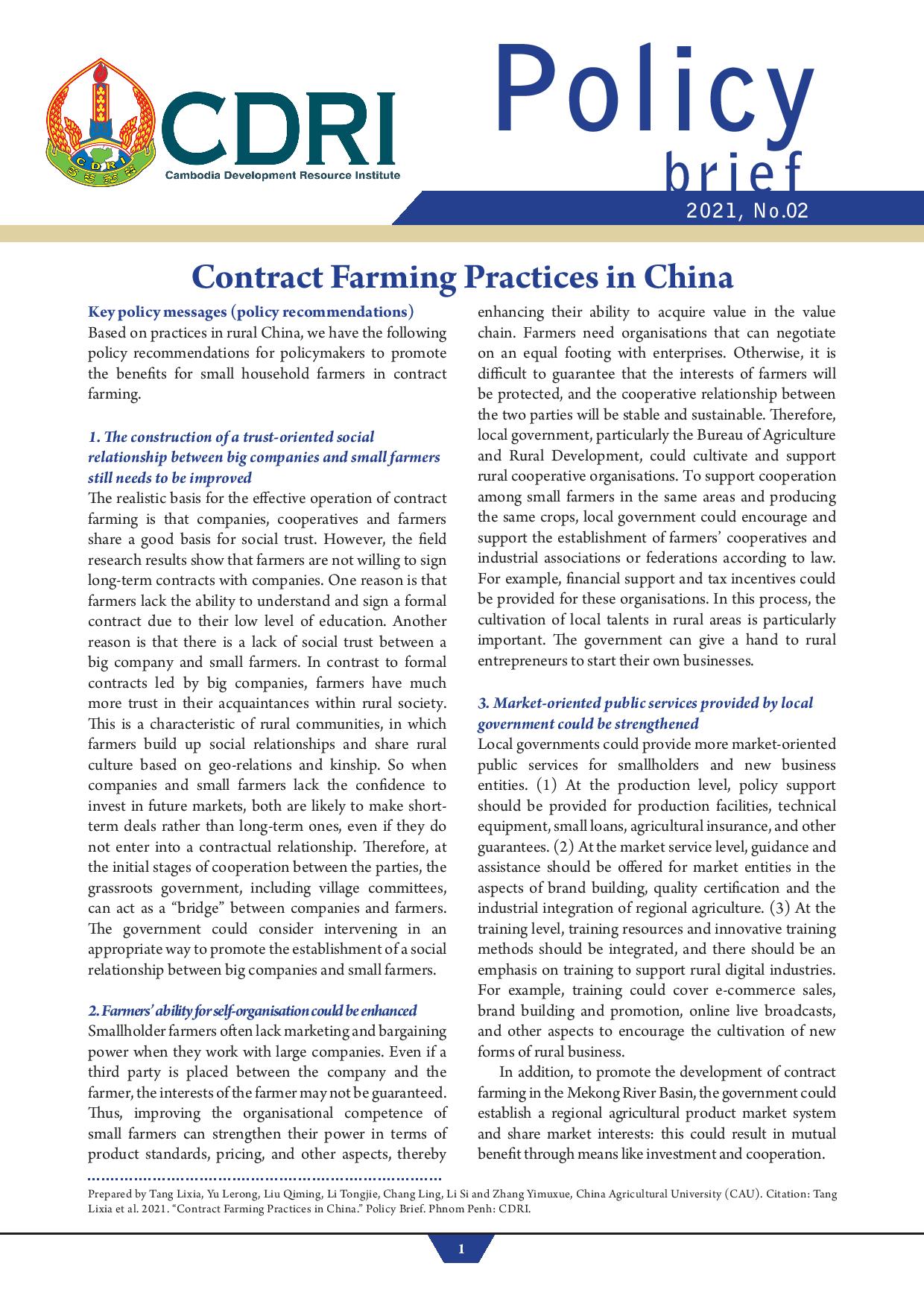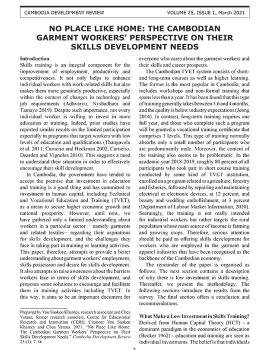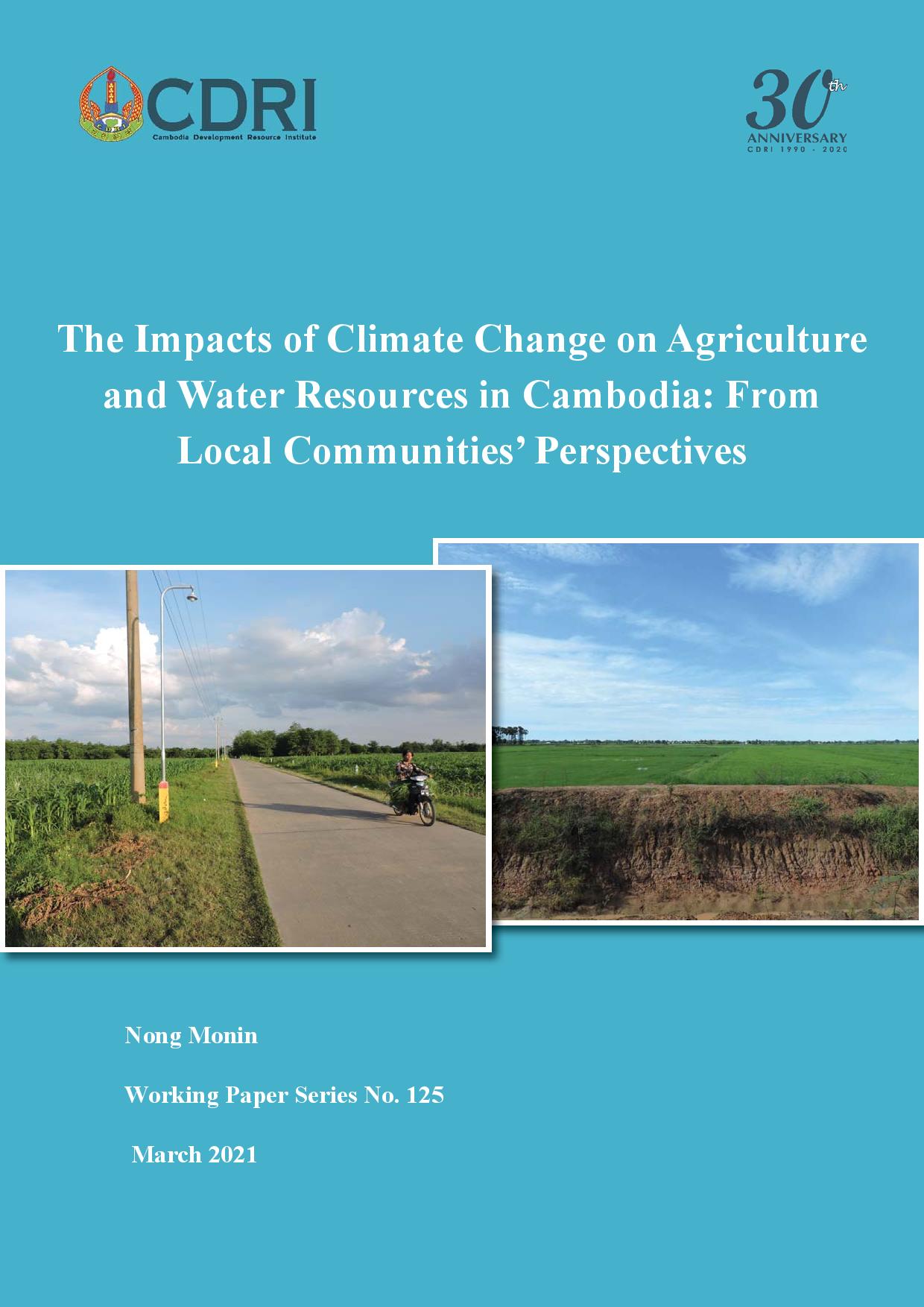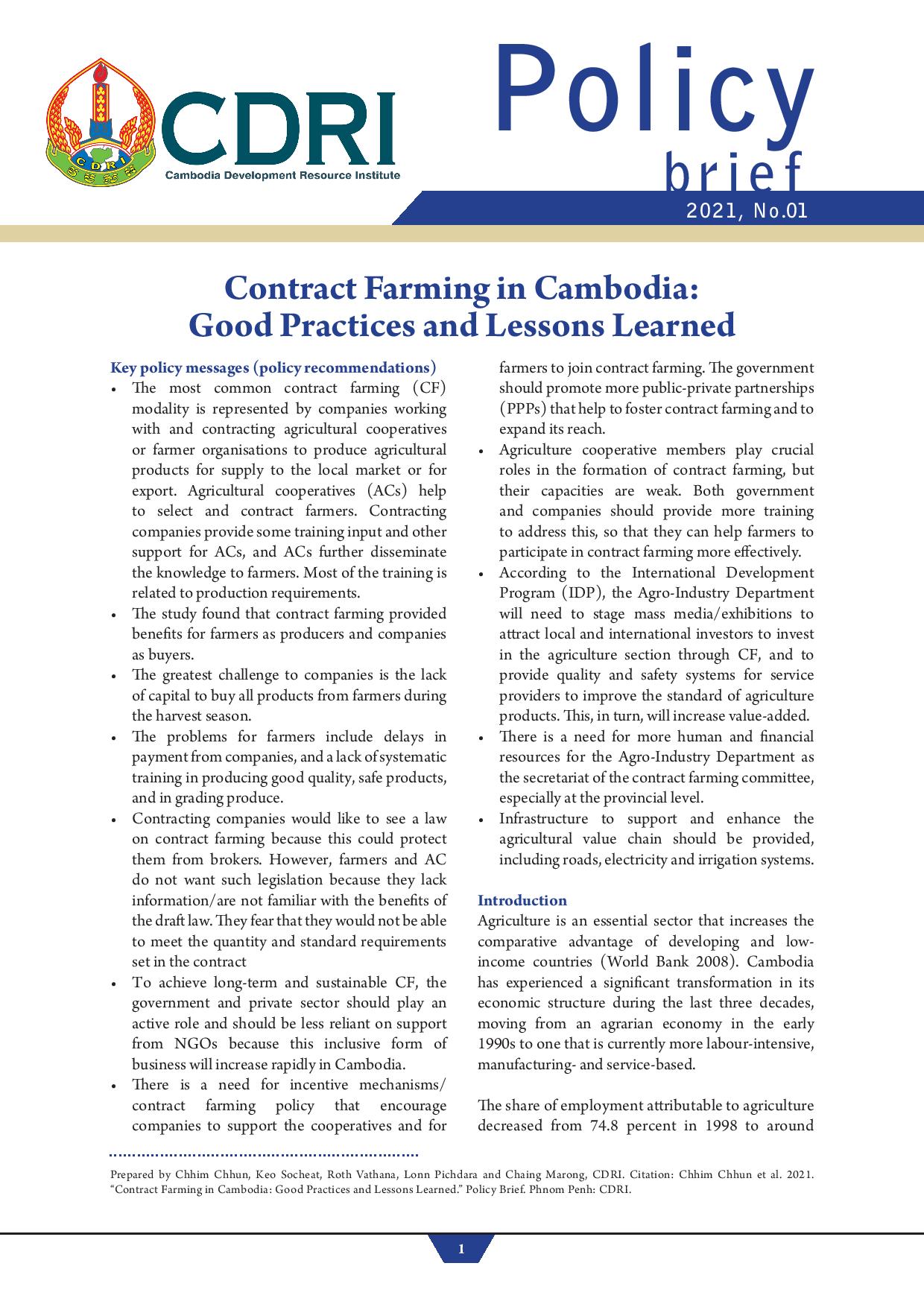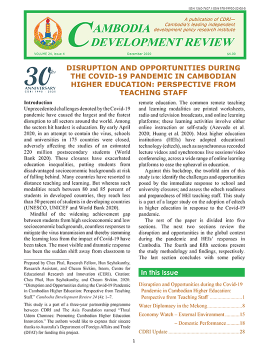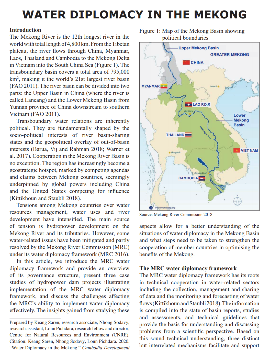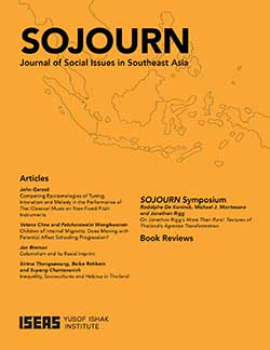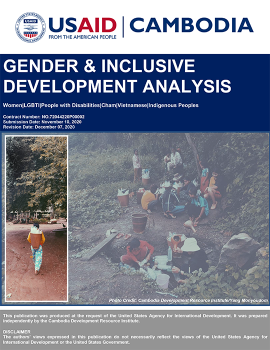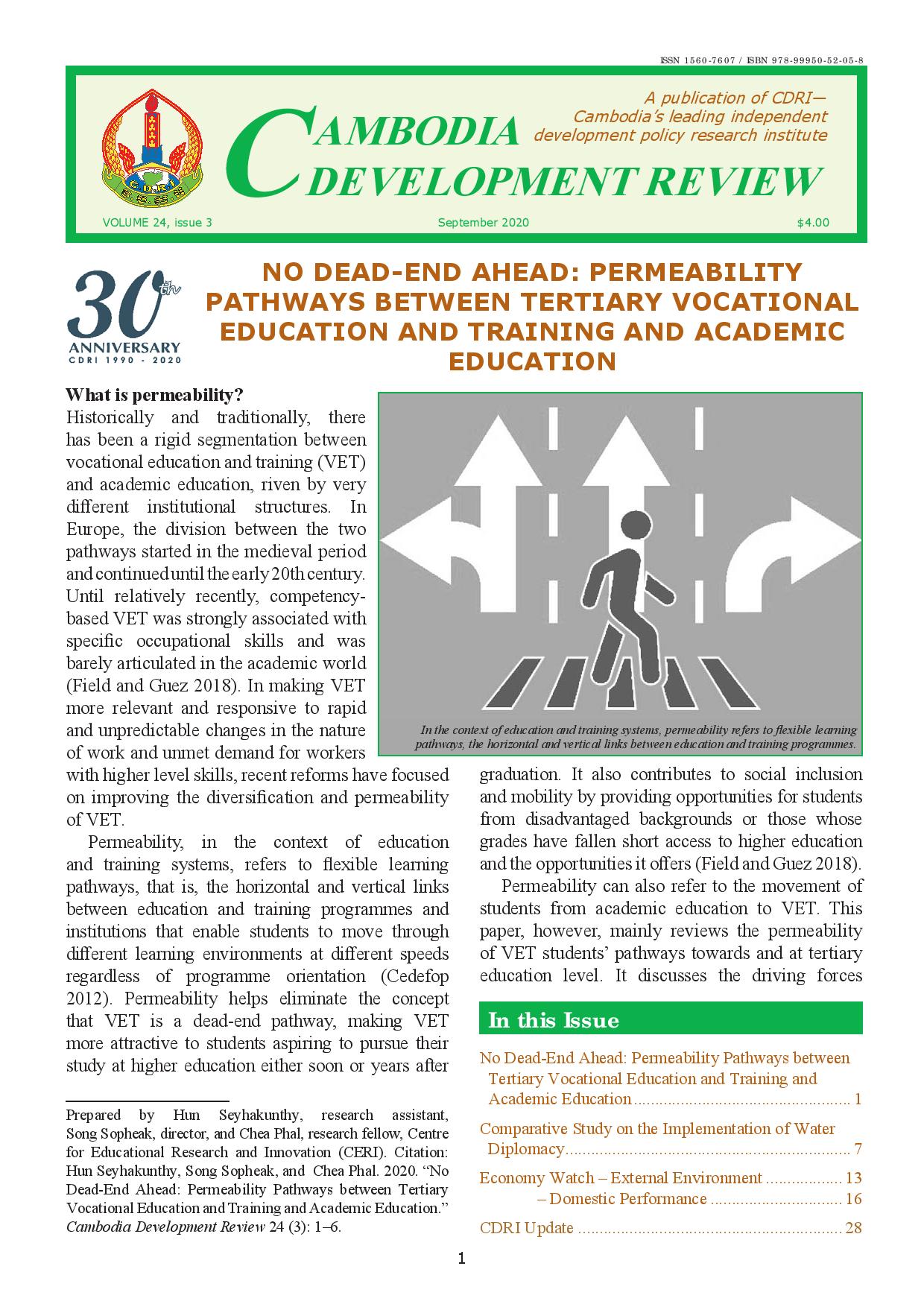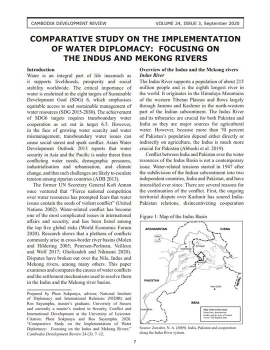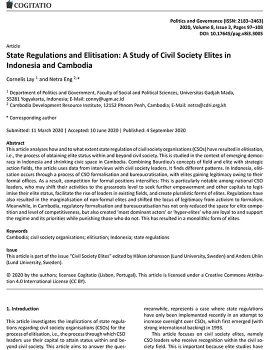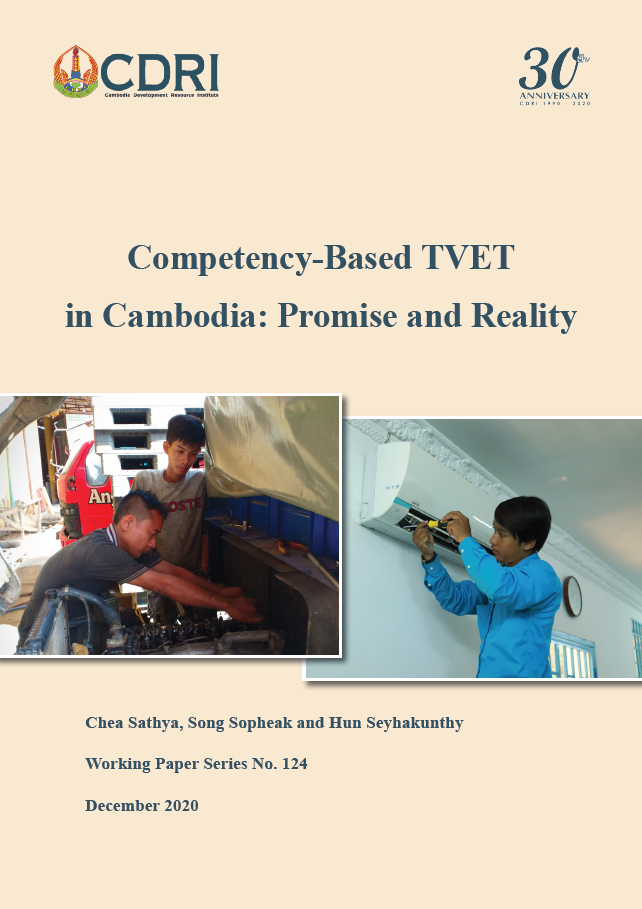YOU Saokeo Khantey, CHEA Vatana
2021
No Place Like Home: The Cambodian Garment Workers’ Perspective on Their Skills Development Needs
Developing skills for current workforce is indispensable in today’s economy. In an attempt to promote investment in skill training for workers in a Cambodian backbone sector, namely garment and textile, this study explores and identifies the problem of underinvestment in their skill training. A total of 787 individual workers are randomly selected using two stages of sampling procedure. The study shows their lack of adequate workplace skills and competencies for career growth related to several reasons, include but not limited […]
NONG Monin
2021
The Impacts of Climate Change on Agriculture and Water Resources in Cambodia: From Local Communities’ Perspectives
In 2019, 61 percent of the population living in rural areas, 76 percent of whom rely on agriculture as the main source of income and livelihood, sustainable rural and agricultural development is paramount to the Cambodian economy. National Strategic Development Plan 2019–2023 forms the basis of the national approach for strengthening the agriculture sector to generate jobs, ensure food and nutrition security, expand agricultural exports, reduce poverty, improve rural livelihoods and revive rural areas towards achieving sustainable and inclusive development […]
CHEA Phal, HUN Seyhakunthy, CHHEAM Sivkim
2020
Disruption and Opportunities During the Covid-19 Pandemic in Cambodian Higher Education: Perspective from Teaching Staff
The twofold aim of this study is to: identify the challenges and opportunities posed by the immediate response to school and university closures; and assess the edtech readiness and preparedness of HEI teaching staff. The findings demonstrate that unstable internet connection and difficulty assessing student performance are the biggest obstacles impeding the effective delivery of distance learning. Nevertheless, the pandemic has pushed schools to bring about much-needed innovation by integrating new educational technologies in learning and teaching and supporting teaching […]
KEANG Saren, NHONG Sodavy
2020
Water Diplomacy in the Mekong
In this article, we introduce the MRC water diplomacy framework and provide an overview of its governance structure, present three case studies of hydropower dam projects illustrating implementation of the MRC water diplomacy framework, and discuss the challenges affecting the MRC’s ability to implement water diplomacy effectively. The insights gained from studying these water diplomacy in the Mekong aspects allow for a better understanding of the situations of water diplomacy in the Mekong Basin and what steps need to be […]
CHEA Vatana, Patcharawalai Wongboonsin
2020
Children of Internal Migrants: Does Moving with Parent(s) Affect Schooling Progression?
Using the 2011 Cambodia Rural-Urban Migration Project, we re-examine the effect of parental migration on the long-term educational progress of children who have accompanied their parents to urban areas by comparing such children with those left behind in rural areas. We use a measurement that captures schooling disruption effect and allows for the possibility that being a migrant child also depends on school quality in the neighbourhood. The fixed-effect estimator is applied to eliminate family characteristics shared among siblings such as parental resources and perceptions towards education. […]
CDRI
2020
Gender and Inclusive Development Analysis
This study reports the results of a comprehensive gender and inclusive development analysis (GIDA) to inform the United States Agency for International Development (USAID)‟s workplans regarding Cambodia‟s Country Development Cooperation Strategy (CDCS) for 2020– 2025. The GIDA uses a combination of quantitative and qualitative methods to identify macro and sectoral level gender gaps, social inequalities, and barriers that exclude minority groups from accessing basic services and enjoying their rights. This report provides results and recommendations on how to address gender […]
HUN Seyhakunthy, SONG Sopheak, CHEA Phal
2020
No Dead-End Ahead: Permeability Pathways Between Tertiary Vocational Education and Training and Academic Education
Permeability, in the context of education and training systems, refers to flexible learning pathways, that is, the horizontal and vertical links between education and training programmes and institutions that enable students to move through different learning environments at different speeds regardless of programme orientation. This study aims at discussing the driving forces behind endeavours to make the education and training systems more permeable and pointing out the key policies and instruments in force worldwide. This study concludes with some lessons […]
Cornelis Lay, ENG Netra
2020
State Regulations and Elitisation: A Study of Civil Society Elites in Indonesia and Cambodia
This article analyses how and to what extent state regulation of civil society organisations (CSOs) have resulted in elitisation, i.e., the process of obtaining elite status within and beyond civil society. This is studied in the context of emerging democracy in Indonesia and shrinking civic space in Cambodia. Combining Bourdieu’s concepts of field and elite with strategic action fields, the article uses data from interviews with civil society leaders. It finds different patterns. In Indonesia, elitisation occurs through a process […]
CHEA Sathya, SONG Sopheak, HUN Seyhakunthy
2020
Competency-Based TVET in Cambodia: Promise and Reality
Modernisation brings new economic and social challenges around the globe. In this era of the knowledge economy, knowledge and skills have become valuable assets for national development. Many countries have been working out how best to enhance their knowledge and skills pool. Focus has recently turned to competency-based training (CBT), which is believed to enrich students with practical competencies relevant to labour market needs and thus enhance their productivity and, ultimately, national economic growth. The CBT is characterised by a […]

